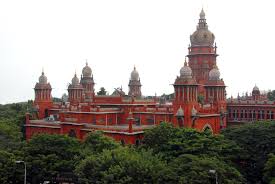The Madras High Court stated that no unauthorized construction is allowed and that authorities must take action if anyone files a complaint.

The Madras High Court stated that no unauthorized buildings should be allowed to stay, and authorities must take action when they receive information or complaints from anyone. This statement was made in response to a Writ Petition filed by a company challenging the Chennai Metropolitan Development Authority’s (CMDA) order to remove its unauthorized structure. Justices S.M. Subramaniam and K. Rajasekar emphasized that unauthorized constructions cannot be permitted, and the authorities are required to act upon any complaints. They noted that since the Supreme Court has set the law, courts cannot show leniency just because someone has invested money in a violation.
Advocate Ashok Menon represented the Petitioner, while Advocates A. Arun Babu and R. Sivakumar represented the Respondents. The Petitioner originally received permission to build a basement, ground floor, mezzanine, and three additional floors for a commercial building. However, the Petitioner ended up constructing a basement, ground floor, and eight additional floors, along with parts of the 9th and 10th floors. These unauthorized structures were built in a busy area of Chennai. The Petitioner submitted multiple applications to the CMDA to regularize the unauthorized construction, but these requests were not approved, as regularization was deemed not possible under the law. The developer violated the approved plan by adding extra floors.
The extra floors were fully built, and shortly after the unauthorized constructions were finished, a request for regularization was submitted but was denied in a letter. The Petitioner then submitted a second regularization request, which was also rejected, and this decision was confirmed in a letter from the CMDA. With both applications turned down, a notice for locking, sealing, and demolition was issued, followed by actions to lock and seal the unauthorized floors and the ground floor structure on the western setback area. The Petitioner appealed under Section 80-A of the Tamil Nadu Town and Country Planning Act to the Government, but this appeal was also denied.
In this case, the High Court explained, “Builders and contractors feel encouraged to break the law, thinking they can escape consequences or avoid demolition by applying for regularization.” The Court noted that this behavior is supported by widespread collusion among CMDA officials, the Corporation, and other authorities due to their failures and mistakes. “The first regularization request from the petitioner was rejected in 2007, and the second in 2014. Neither rejection was challenged. The appeal under Section 80-A of the Town and Country Planning Act was also denied by the Government. The CMDA’s recent action to remove unauthorized structures on 28.11.2023 is the only part being contested in this writ case,” it added.
The Court stated that the unauthorized sections are secured by the CMDA, allowing them to move forward with demolishing these parts while keeping the approved sections of the building according to the approved plan. The Court ordered respondents 1 to 4 to demolish the unauthorized parts as per the order dated 28.11.2023, within eight weeks of receiving this order. As a result, the High Court dismissed the Writ Petition.
Cause Title: M/s Janpriya Builders v. The Commissioner Greater Chennai Corporation & Ors. (Neutral Citation: 2025:MHC:426)







